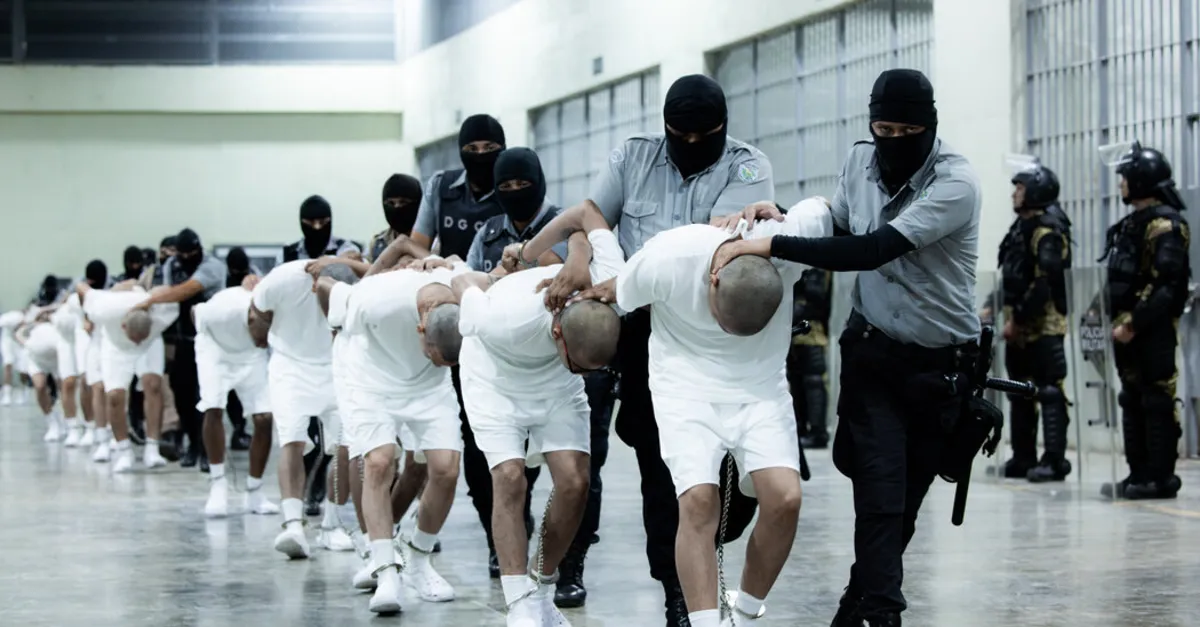
In a dramatic turn of events this past weekend, shortly after the Trump administration deported hundreds of Venezuelans to El Salvador, the Salvadoran president, Nayib Bukele, took to social media to share a striking three-minute video. This video showcased shackled men being escorted off a plane against a backdrop of intense electronic music, only to be directed into a prison where they underwent a bald shaving. The imagery presented was both powerful and controversial, raising questions about human rights and the treatment of deportees.
Following the deportation flight, President Bukele did not hold back in his response. He taunted the U.S. judge who had attempted to halt the flights, posting on X, “Oopsie … Too late,” accompanied by a laughing emoji. This bold statement reflects not only Bukele's confidence but also his growing influence on the international stage. The video quickly gained traction, with prominent figures like Secretary of State Marco Rubio and billionaire Elon Musk sharing it, amplifying its reach.
Former President Donald Trump expressed gratitude towards Bukele, stating, “We will not forget!” This endorsement from Trump underscores the evolving relationship between the two leaders, highlighting El Salvador’s strategic position in the deportation strategy of the Trump administration. This partnership marks a significant milestone in Bukele's presidency, providing him with a new level of power and visibility on the global stage.
Nayib Bukele, who assumed the presidency at the young age of 37 in 2019 and was re-elected with a landslide victory last year, has emerged as one of Latin America’s most popular leaders. His popularity is largely attributed to his aggressive stance against gangs, which has garnered support from citizens weary of violence and crime. However, his administration is not without controversy; Bukele has faced criticism for suspending key civil liberties and has been accused by U.S. prosecutors of clandestinely negotiating with the very gangs he claims to combat.
By aligning himself with the Trump administration's deportation efforts, Bukele is actively positioning El Salvador as a crucial regional ally. This strategy not only enhances his international standing but also reinforces his domestic agenda against organized crime. As the geopolitical landscape shifts, Bukele's role in U.S. immigration policy could define his presidency and impact the future of El Salvador.
In summary, the recent events surrounding the deportation of Venezuelans to El Salvador and Bukele's response highlight the complex interplay of power, politics, and social media in shaping modern leadership. As Bukele continues to navigate these challenges, his influence is set to grow, making him a key figure in Latin America and beyond.